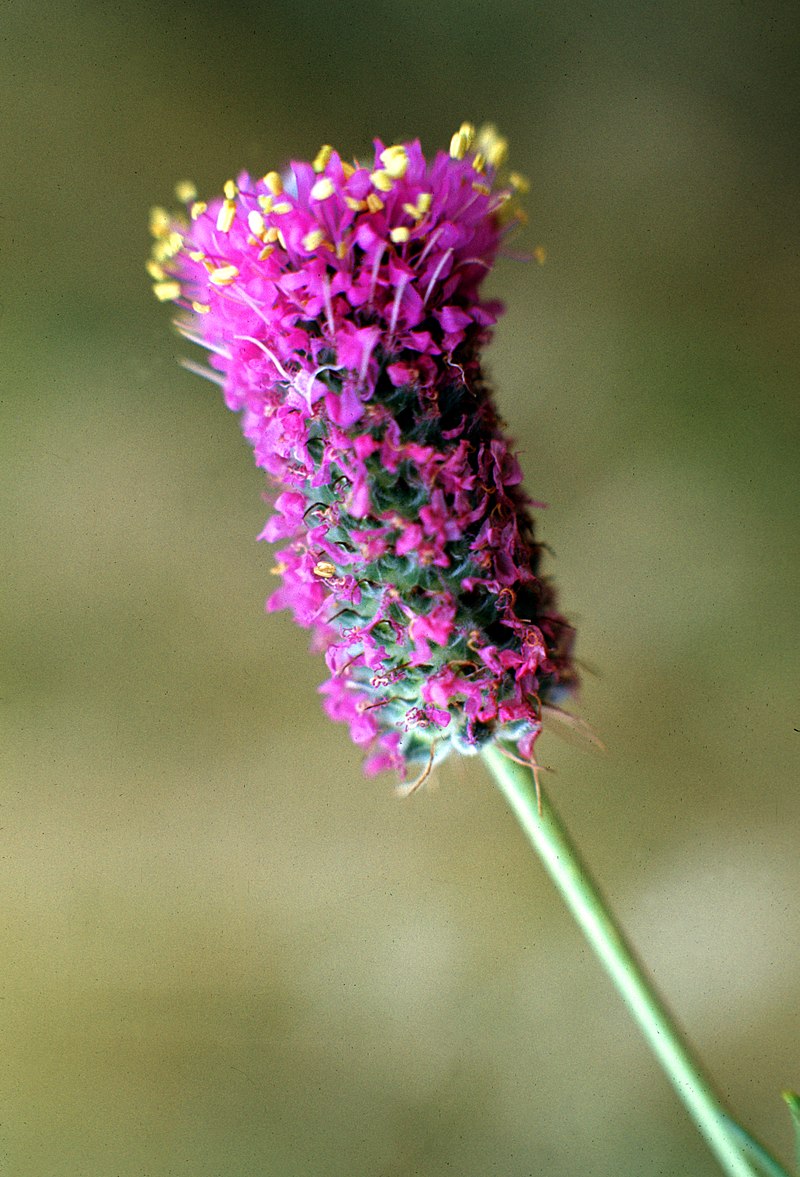 Dalea pupurea is a flowering legume better known as purple prairie clover. Its name comes from its vivid purple flower petals. Purple prairie clover can be found naturally across much of the United States, and it is especially common across the Great Plains and surrounding prairie lands. Thanks to its stunning purple petals and distinct cone-like flower head, it’s also regularly used in manmade locales such as parks, recreation areas, gardens, and more.
Dalea pupurea is a flowering legume better known as purple prairie clover. Its name comes from its vivid purple flower petals. Purple prairie clover can be found naturally across much of the United States, and it is especially common across the Great Plains and surrounding prairie lands. Thanks to its stunning purple petals and distinct cone-like flower head, it’s also regularly used in manmade locales such as parks, recreation areas, gardens, and more.
When fully grown, the stems of purple prairie clover can reach heights of 2.5 feet. It’s proven to be a popular food source for many wildlife due to its high-protein content and moderate taste. In fact, Native Americans used to eat this legume both boiled and raw.
Utilizing Purple Prairie Clover in CRP
Purple prairie clover is a popular addition to many types of CRP seed mixes. For those establishing pollinator habitat, its purple petals are great at attracting pollinators such as bumblebees, honeybees, and more. If grazing is a part of your conservation plan, purple prairie clover can be a great source of nutrients for your livestock. However, it does not tolerate continuous or excessive grazing, so you will want to be strategic.
Purple prairie clover also provides great cover for soil, reducing erosion. It also excels at nitrogen fixation, converting atmospheric nitrogen into forms that plants can consume. This further restores soil health, making it a great choice for land that has suffered serious damage.
Purple prairie clover blooms from April to June, with its seeds maturing between mid-July and late August. The clover is easy to establish, though seed typically requires some form of scarification. If you’re looking for a CRP pollinator seed mix that includes purple prairie clover, All Native Seed can help.
At All Native Seed, we provide high-quality seed mixes specifically designed for the Conservation Reserve Program. Our proprietary mixes have been tested across over 400,000 acres of CRP land, ensuring the highest germination rates possible. Additionally, we can provide quotes for seed mixes developed by NRCS.
Either way, you can expect pure seed that has been tested for noxious weeds such as Palmer amaranth.
If you need help establishing your CRP seed, our parent company can help. FDCE provides full-service CRP solutions. That means they handle seed purchasing, planting, herbicide application, documentation, and report submission for cost-share reimbursement from FSA. With FDCE, it’s never been easier to establish CRP.
For more information on FDCE’s services, make sure to visit their website here.
